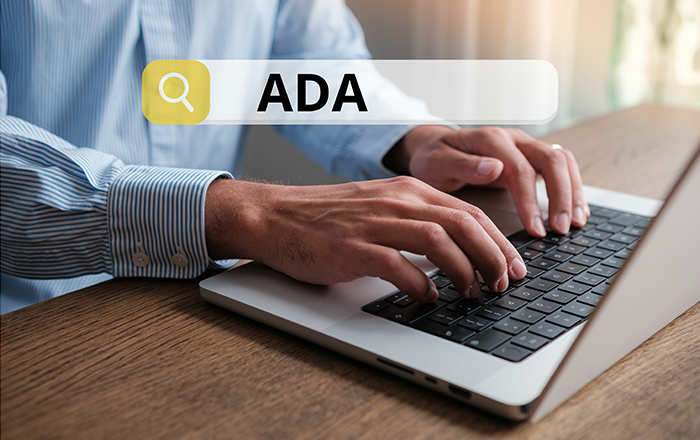Mar 19 2025
How Can Schools & Universities Prepare for ADA Digital Accessibility Requirements?

Director Product Development

Mar 19 2025

Director Product Development

Digital accessibility in education is no longer optional—it’s a necessity. With more than 61 million adults in the U.S. living with a disability and 19% of undergraduate students reporting disabilities, ensuring equitable access to education is critical.
For K-12 schools and higher education institutions, achieving ADA digital accessibility compliance isn’t just about avoiding legal risks—it’s about creating inclusive, engaging learning experiences for all students. However, higher education is saturated with generic accessibility solutions, making it crucial for institutions to choose a partner that offers something beyond mere compliance.
So, how can educational institutions truly differentiate their accessibility initiatives while ensuring ADA compliance and web accessibility? This guide outlines actionable steps and highlights MRCC EdTech’s unique approach to accessibility in higher education and K-12 schools. This guide outlines actionable steps and highlights MRCC EdTech’s unique approach to accessibility in higher education and K-12 schools.
Despite legal mandates:
This data highlights a gap between compliance and real inclusivity, and this is where MRCC EdTech differentiates itself.
1. Conduct Proactive, AI-Powered Accessibility Audits
Most institutions only react to accessibility issues when non-compliance lawsuits arise. According to a 2024 report, 2,400 lawsuits were filed in federal courts and 1,600 in state courts. However, regular proactive audits help organizations comply with legal requirements, reducing the risk of lawsuits and fines associated with non-compliance.
MRCC EdTech’s solution: Unlike traditional manual audits, MRCC leverages AI-powered automation to:
2. Implement Universal Design for Learning (UDL) Principles
A one-size-fits-all approach doesn’t work in education. The Universal Design for Learning (UDL) framework ensures that digital materials accommodate diverse learning needs. UDL focuses on providing multiple means of engagement, representation, and action & expression. These principles are designed to address learner variability and create more inclusive learning environments. By offering diverse options for engagement, UDL aims to increase student motivation and interest in learning. This directly contributes to higher levels of engagement. When students are engaged, they’re more likely to stay motivated and persist in their studies, which leads to improved retention.
MRCC EdTech’s solution: We don’t just fix accessibility issues—we design content from the start with accessibility in mind.
3. Leverage AI to Automate Captioning, Transcription, and Alt Text
About children in the United States are born with a detectable level of hearing loss. And according to the 2022 American Community Survey (ACS), there were an estimated 600,000 children with vision difficulty in the U.S. This estimate includes approximately 290,000 males and 310,000 females with vision difficulty under the age of 18 in the U.S.
Hence, accessible multimedia is essential because it ensures students with hearing or vision impairments can fully engage with educational content. Captions, transcripts, and audio descriptions help overcome learning barriers, improving comprehension and retention. Additionally, accessible content ensures legal compliance (ADA, Section 508) while benefiting all learners including those with different learning styles. Yet there is significant video content in education that lacks captions.
MRCC EdTech’s Differentiator:
4. Ensure LMS & Third-Party EdTech Solutions Are Compliant
Many institutions assume their Learning Management Systems (LMS) are accessible. However, studies show that many LMS platforms contain significant accessibility barriers, making it challenging to create accessible digital learning environments.
MRCC EdTech’s Differentiator:
ADA digital accessibility isn’t just about compliance—it’s about creating truly inclusive, high-quality learning experiences for all. Schools and universities must invest in innovative, AI-powered, scalable solutions to future-proof their digital accessibility strategies.
Partner with MRCC EdTech to transform your institution’s accessibility approach. Book a free consultation today and start your journey toward digital inclusivity.
Leave A Reply
Your email address will not be published. Required fields are marked *